The Infidelity Diaries Read online
Page 5
I wouldn’t have dreamed of questioning his whereabouts whenever he rang me, which obviously worked to Caitt’s advantage. The irony, of course, is that it was Caitt who would turn out to be extraordinarily possessive.
And yet I kept resisting any kind of confrontation and even made excuses for her to our friends, who distrusted Caitt and had started to say so. She was lonely, I said. Her marriage had ended. Sergei was a gallant Russian, and she missed male company. She was lively, a good conversationalist, and could be good fun.
‘No,’ said a close friend of ours one evening, watching Caitt thoughtfully as she snuggled up to Sergei in full view of everyone who had come over to our place that night to celebrate his birthday. ‘She is not good fun. I feel uneasy just being in the same room with her.’
I remember how startled I was when he said this. Our friend was an unemotional pragmatist, not given to making melodramatic statements—nor to exaggerating situations.
And yet, as ever, I pushed his remark away—just as I tried to block out another, even more disturbing image.
Later that night, coming back from the little room downstairs where we kept our bottles of wine, I saw Caitt in the study clutching a framed photo of Sergei and me that usually sat on his desk. She didn’t notice as I paused in the doorway; she never knew that I caught my breath when I saw her.
Even at that point I didn’t react as most women would have, by confronting her for once and for all. Instead I stole away with the wine I was holding and went back to the part of the house where everyone was talking and laughing, back to an atmosphere of normality that increasingly seemed only to exist when friends were over, because of the distance that had begun growing between Sergei and me.
Whenever I had tried talking to him about what seemed to be happening between us, he refused to discuss it. We had started having fights about nothing. We no longer made love. We hadn’t, for several months. When he told me long afterwards that he had discussed our intimate life with Caitt, I was appalled.
The night that I spotted her in the study with our photo would turn out to be the last time she came to our house.
For weeks afterwards, I tried to convince myself that what I’d seen had been an illusion, a trick of lighting—just as I had in Phang Nga Bay, when her face changed so suddenly.
The lamps in the study had been turned low. There were shadows; it was late; she’d been drinking.
So it must have been fatigue that I saw, not ferocity.
But once again, I’m getting ahead of the story.
At 11 p.m. one night at the end of July, Sergei collapsed.
We were at home, getting ready for bed, when he suddenly went pale and moaned; he managed to say that he was in incredible pain and that his head was splitting, before his legs buckled beneath him.
There had been no warning beforehand that anything was wrong. Sergei hadn’t said he felt ill, or even that he felt nauseous. The agony he was in became much worse as I grabbed the phone to call an ambulance and I remember that my voice shook so much that momentarily I had to stop speaking in order to control it.
The journey to hospital was a nightmare. Even now, I hate the sound of an ambulance siren. The grim expressions of the two paramedics tending to Sergei frightened me, and I kept asking them why they couldn’t give him some pain relief, since he was obviously in terrible distress. Maybe they did, but my memory is blank.
Sergei had suffered a bleed in the stem of his brain. Exactly why this happened would remain a mystery. His doctors found no sign of aneurysms, as is often the case in such circumstances. Not knowing the cause would never cease to be troubling.
Ultimately, he would make a good recovery after spending almost a month in hospital, which included a nerve-racking ten days in the neurosurgery intensive care unit. I spent most of those ten days by his side—and I didn’t leave the hospital at all for the first forty-eight hours. Only after the medical staff said they were satisfied that Sergei’s condition had stabilised did I go back to the house to grab a couple of hours sleep.
‘Get some rest. You’re exhausted,’ said the same nurse who had wrapped a blanket around me as I stood numbly in ICU that first night—or rather, in the early hours of the morning—while Sergei was surrounded by medical staff.
It was close to noon when I arrived home, and I was immediately struck by the notion that I had come to the wrong house. I remember standing outside in the warm winter sunshine, shivering despite the coat I was wearing, and wondering why I had the sensation that someone else lived here.
The house itself didn’t look any different. A colony of tiny lizards lay sunbaking, as usual, in the cracks in the stone steps up to the front door. It had been an unusually warm winter and the temperature today was twenty-four degrees. I wondered, all of a sudden, how many summers we had left as a couple, and then immediately tried to pull myself together. Where on earth had that thought come from?
I banished it as I unlocked the door and stumbled inside, feeling utterly alone—and worn out from feeling so alone.
It was a feeling that encompassed far more than what had just happened to Sergei. It was the whole situation between us. A tension existed that seemed to have no basis in anything. The two of us had always had passionate arguments about every subject under the sun, and I could be as infuriatingly stubborn about my point of view as Sergei could be about his. But our arguments now were different. There was no point to them. He had become critical of me in a way he never had been previously, treating almost everything I said with scorn. For some time I’d been feigning a calmness that I certainly didn’t feel, not least because Caitt had begun ringing Sergei most evenings, usually around the time we were eating dinner.
One night she rang on the landline and I picked up. Her brusque, dismissive tone of voice annoyed me intensely. ‘Zara, is Sergei there? His phone is switched off.’
The conversation between them on that occasion didn’t seem to have much point. I remember Sergei grunted his way through it, saying merely, ‘Okay, let’s talk tomorrow,’ before hanging up.
Fed up, I challenged him. ‘What was so important that Caitt had to ring yet again when we’re having dinner? Didn’t she get to spend enough time with you at the wine bar this evening?’
My sarcasm infuriated him. ‘We’re friends!’ he replied. ‘She can ring whenever she likes!’
Caitt also emailed him constantly. I had only discovered this when Sergei had his laptop open on the dining room table one evening, and started chuckling over a cartoon she’d just sent him.
‘Come and see it,’ he called out.
‘You had twelve emails from Caitt just today?’ I asked incredulously, scanning the inbox over his shoulder.
‘So what?’ Sergei retorted. ‘What’s the matter with you?’
Now, in our silent house, in the bedroom where he had collapsed, I told myself to stop it—stop dredging up all of this stuff. There had been a moment in hospital when Sergei reached for my hand as a nurse injected him with morphine. So he hadn’t forgotten he loved me, I’d thought. But now, in our bedroom, I felt that I was fooling myself.
The idea of sleep seemed impossible. All the same, I kicked off my shoes and lay down on the bed, with both our phones next to me. I’d left Sergei’s phone behind when I’d rushed with the medicos out to the ambulance and it was still lying beside the bed when I got home. I hadn’t checked it for missed calls.
Somehow I dozed off while still vaguely aware of a church bell tolling somewhere in the distance. A wedding? A christening? A funeral? I had opened the bedroom windows wide when I first came in, needing to feel fresh air on my face. Finally I was starting to calm down.
Then Sergei’s phone started ringing and I sat up with a start.
The disdainful voice at the other end of the line—the flash of memory—made me gasp.
‘What are you doing, answering Sergei’s phone?’
It was Thailand all over again.
‘I’ve been calling Sergei for the pa
st twenty-four hours,’ she went on. ‘I’m worried about him. You don’t happen to know where he is, by any chance, Zara?’
Why on earth didn’t I hang up then?
I did hang up—but only after I had answered her question. ‘He collapsed. He’s in hospital. He’s stable. He can’t see anyone except me.’
And then I slammed down the phone.
It was impossible to sleep after that. I got up and drove back to the hospital—where I stayed for most of the next ten days, as I’ve said. My visits home were fleeting. I put my work on hold.
Finally, Sergei was moved to a room of his own in the ‘step-down’ section of ICU. Only then did I race into the city early one morning to the one place I knew where I could lock myself away and work in absolute peace. The ‘eyrie’ was a city office belonging to an old friend, a human rights lawyer who was constantly travelling overseas and who had been generous enough to give me a key. I went in there often to write; now I needed to collect some research material as well as a couple of books, before going directly to the hospital. At this time of the morning it had been quicker to drive than take the train.
It wasn’t yet nine o’clock when I arrived back in the wing where Sergei was being cared for. One of the nurses on duty that morning saw me walking along the corridor and called me over to the desk.
‘Sergei has a visitor,’ she said. ‘She turned up about five minutes ago. A woman. The same one, it turns out, who has been ringing here every day. She was very insistent about seeing him and became quite upset when I said that you’re the only visitor he’s allowed. In the end I said she could have three minutes only. Her time is up.’
‘Thanks,’ I said. ‘I think I know who it is.’
The nurse gave me a questioning look, then glanced at the clock on the wall.
‘Make sure she leaves,’ she said. ‘I shouldn’t have let her in at all.’
‘Yes,’ I replied. ‘I will.’
Sergei’s room was just around the corner. Even though I knew Caitt would be there, I was still shocked by the scene that confronted me. Sergei was sitting on the side of his bed, in his hospital gown, looking dejected. Caitt had her back to the doorway. She was standing so close to him that their two bodies were almost touching. As I watched, she put one hand on her hip and with the other began stroking Sergei’s head. He tried half-heartedly to brush her hand away but, as he did so, Caitt grabbed his hand and held it. Then she bent down and kissed him with great tenderness on the forehead.
I always knew that sooner or later I would see something happen between Caitt and Sergei that would be a defining moment, one where I knew that I had to stop giving her the benefit of the doubt. But when it came, I wasn’t prepared for it and stood there frozen, feeling utter desolation. And shock.
Sergei caught sight of me then, and smiled wanly.
‘Hi,’ he said. ‘Where have you been?’
Caitt spun around. She didn’t look in the least embarrassed. Just irritated.
‘For heaven’s sake, Zara! Why are you here so early? Sergei needs to rest. Come along, I’ll give you a lift home. Or did you drive over?’
She picked up her bag and the long black coat that she had slung over a chair and gestured for me to move back into the hallway. I felt a tap on my shoulder at the same time. Behind me stood one of Sergei’s specialists. A bluntly spoken man, who I suspect could see immediately what was happening—having probably dealt with similar situations many times in his career—he didn’t bother with niceties.
‘Out!’ he said. ‘You can come back in a few minutes,’ he added, to me.
‘You can’t,’ he said to Caitt, who looked stunned.
She pushed past me, not meeting my eyes.
I went over to Sergei and gave him a quick kiss. ‘Back in a sec,’ I said.
Wrapped in her executioner’s coat, Caitt was waiting outside in the corridor. We walked side by side in silence, as far from the nurses’ station as possible, and then we both halted. It was yet another odd moment, when I think we both silently acknowledged an odd kind of sympathy for the other.
But then I saw that cold, hard look return to Caitt’s face—the one she never let anyone else see. And because—as ever—there were no witnesses, she didn’t measure her words.
‘I want to explain my philosophy to you, Zara. Not right now. I’m too upset about Sergei. But you and I need to have a discussion in the very near future. I realise that you care about Sergei, but how often aren’t you there for him? I’ll accept for now that you’ll try to look after him. However, this is a temporary situation. Sergei’s health is now my priority.’
I let her finish. I remained perfectly composed. One of the best things about being a writer is that I know how to self-edit.
‘Goodbye, Caitt,’ I said. ‘I must get back to Sergei.’
And I turned and started walking back to his room, supremely aware that several seconds went by before I heard the clicking of her heels going in the opposite direction.
We both knew that she had just declared war.
Back in Sergei’s room, I sat down on his bed next to him. The specialist had left. ‘I think Caitt’s in love with you,’ I said.
‘I think you’re right,’ Sergei replied.
It was the only time he ever admitted this to me. Later he would always deny that he had ever said such a thing.
During the months that followed, a false calm descended. A false peace if you like. Both Caitt and I knew perfectly well that a line had been crossed in the hospital corridor, although all she said, the next time she saw me, was, ‘My feelings got the better of me that morning.’
We both let the subject drop. I don’t think either of us wanted a confrontation right then because, ironically, neither of us wanted to cause Sergei any stress. I knew that Caitt was merely biding her time, and I knew as well that she would ‘cooperate’ with me so that I wouldn’t banish her from the house.
So whenever she came over she was careful not to overdo the languishing looks, or the lingering looks, or the wistful if-only glances, that were part of her repertoire.
Still, the false peace couldn’t last—and it didn’t. Caitt could only keep up her act of appeasement for so long.
The incident in the study, when I discovered her staring at the photo of Sergei and me, took place in September, about six weeks after Sergei was allowed out of hospital. That night—his birthday night—he was almost back to his old self. We had cooked his birthday party dinner together, and he had even given me a hug once or twice. His health scare had shaken him. ‘I feel diminished,’ he’d said, the first night he was home.
But he’d been given the thumbs-up by his doctors after a second checkup only a week before his birthday, and for the first time in ages he was relaxed. It was good to watch him laughing and joking, even though Caitt spent most of the evening, as ever, trying to monopolise his attention.
I know exactly what triggered that scene in the study.
After the main meal, I had come out of the kitchen with a birthday cake and was bringing it across the room to the table, when one of our friends asked Sergei if he’d been able to eat the hospital food. Sergei replied that I’d sneaked some piroggi into his room, so he’d survived. Just.
There was laughter. Then someone else commented to me that it must have been terrifying, the night he collapsed. As I said yes, and tried to describe the awfulness of those first forty-eight hours, Sergei suddenly reached out and put an arm around my waist, drawing me to his side. It was as if we had suddenly been transported back to a past when we were still happy together. Leaning into him, I felt for a moment that we were a couple again.
Automatically, I glanced at Caitt, who was sitting on Sergei’s right. She had gone rigid, just as she had when Sergei put his arm around my waist in our canoe in Thailand. Her mouth was working and her hands, clenched on the table, had become fists. For one moment I really thought she was going to leap to her feet and push me away from Sergei, just as she’d pushed the chair aw
ay in the restaurant. I could almost physically feel her wanting to do it.
But then her eyes went to Sergei and her furious expression was replaced by the bizarre, bewildered look that I had also come to know well. How could you? she seemed to be saying.
The moment passed. Conversation around the table resumed. Caitt put on a frightful smile, picked up Sergei’s hand and held it to her cheek. And later on, I caught her in the study, with our photo . . .
She left before anyone else that night, pleading a headache. Days went by. No visits from Caitt. No phone calls, either—at least not to the house. Towards the end of the month, I asked Sergei whether she had gone into retirement, since she hadn’t been over since his birthday dinner. ‘A joke!’ I said innocently, when he looked irritated by the question.
He’d seen her a few times for a drink, he said, after a moment. And Tobie, too, he added.
As it happened, I had been invited to a book launch the following evening, which Sergei had said he would skip. No doubt it was because of the conversation with him about Caitt that, at the last minute, I changed my mind about going to the launch and rang Sergei at his office, suggesting that we go out for dinner instead.
‘Let’s meet somewhere.’ Then I added, ‘And not at the wine bar.’
‘There’s nothing wrong with the wine bar,’ replied Sergei. ‘Anyway, Caitt invited me for a quick meal at her place. I’ll let her know that we’re both coming.’
‘Since when has she been inviting you over for dinner?’ I asked immediately.
‘She did a couple of times, before I became ill. You were off somewhere, working as usual. And why can’t she invite me? What’s wrong with that?’
His tone had become unusually aggressive.
‘You didn’t mention you’d been having meals at her house. And I’ve noticed that she hasn’t invited the two of us over to her place for quite a while.’
‘She has been very busy.’
‘But not too busy, apparently, to invite you on your own.’

 Goody Two-Shoes
Goody Two-Shoes The Pearl Box
The Pearl Box And when you gone...
And when you gone... Stranger At The Other Corner
Stranger At The Other Corner My Young Days
My Young Days Harry's Ladder to Learning
Harry's Ladder to Learning Vice in its Proper Shape
Vice in its Proper Shape_preview.jpg) Promise (the curse)
Promise (the curse) The First Sexton Blake
The First Sexton Blake Golden Moments
Golden Moments Hildebrand; or, The Days of Queen Elizabeth, An Historic Romance, Vol. 2 of 3
Hildebrand; or, The Days of Queen Elizabeth, An Historic Romance, Vol. 2 of 3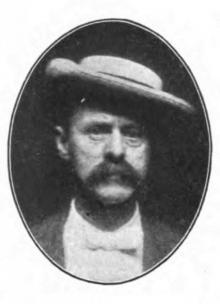 The Ice Queen
The Ice Queen Phebe, the Blackberry Girl
Phebe, the Blackberry Girl Stoned Immaculate
Stoned Immaculate Hildebrand; or, The Days of Queen Elizabeth, An Historic Romance, Vol. 3 of 3
Hildebrand; or, The Days of Queen Elizabeth, An Historic Romance, Vol. 3 of 3 The Wonder of War on Land
The Wonder of War on Land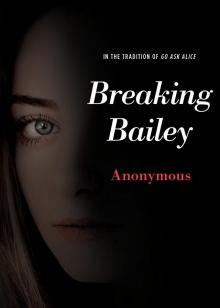 Breaking Bailey
Breaking Bailey The Little Girl Who Was Taught by Experience
The Little Girl Who Was Taught by Experience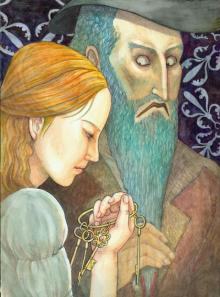 The Popular Story of Blue Beard
The Popular Story of Blue Beard The Life Savers: A story of the United States life-saving service
The Life Savers: A story of the United States life-saving service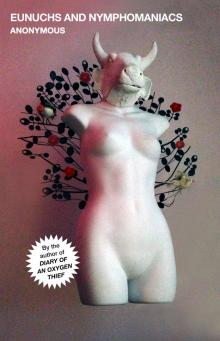 Eunuchs and Nymphomaniacs
Eunuchs and Nymphomaniacs Hildebrand; or, The Days of Queen Elizabeth, An Historic Romance, Vol. 1 of 3
Hildebrand; or, The Days of Queen Elizabeth, An Historic Romance, Vol. 1 of 3 Kitty's Picnic, and Other Stories
Kitty's Picnic, and Other Stories Two Yellow-Birds
Two Yellow-Birds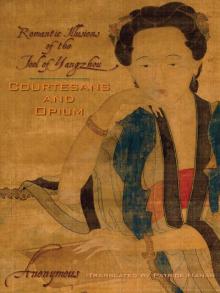 Courtesans and Opium
Courtesans and Opium The Emigrant's Lost Son; or, Life Alone in the Forest
The Emigrant's Lost Son; or, Life Alone in the Forest Toots and His Friends
Toots and His Friends Fast Nine; or, A Challenge from Fairfield
Fast Nine; or, A Challenge from Fairfield Ned Wilding's Disappearance; or, The Darewell Chums in the City
Ned Wilding's Disappearance; or, The Darewell Chums in the City A Picture-book of Merry Tales
A Picture-book of Merry Tales The Trail of The Badger: A Story of the Colorado Border Thirty Years Ago
The Trail of The Badger: A Story of the Colorado Border Thirty Years Ago Peter Parley's Visit to London, During the Coronation of Queen Victoria
Peter Parley's Visit to London, During the Coronation of Queen Victoria The Rainbow, After the Thunder-Storm
The Rainbow, After the Thunder-Storm Arthur Hamilton, and His Dog
Arthur Hamilton, and His Dog The Story of the White-Rock Cove
The Story of the White-Rock Cove Grushenka. Three Times a Woman
Grushenka. Three Times a Woman Adventures of a Squirrel, Supposed to be Related by Himself
Adventures of a Squirrel, Supposed to be Related by Himself Falling in Love...Again
Falling in Love...Again The Colossal Camera Calamity
The Colossal Camera Calamity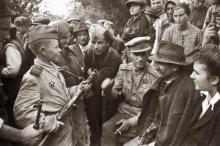 Child of the Regiment
Child of the Regiment Elimination Night
Elimination Night The Kingfisher Secret
The Kingfisher Secret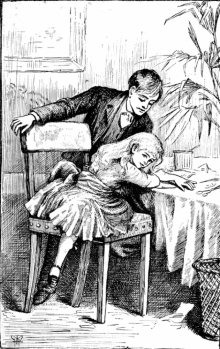 Left to Ourselves; or, John Headley's Promise.
Left to Ourselves; or, John Headley's Promise. The Island of Gold: A Sailor's Yarn
The Island of Gold: A Sailor's Yarn Adventures of Bobby Orde
Adventures of Bobby Orde Twain, Mark: Selected Obituaries
Twain, Mark: Selected Obituaries When Love Goes Bad
When Love Goes Bad The Incest Diary
The Incest Diary Calling Maggie May
Calling Maggie May The Infidelity Diaries
The Infidelity Diaries Diary of an Oxygen Thief (The Oxygen Thief Diaries)
Diary of an Oxygen Thief (The Oxygen Thief Diaries) ARABELLA
ARABELLA The Eye of the Moon
The Eye of the Moon Dara
Dara THE ALTAR OF VENUS: The Making of a Victorian Rake
THE ALTAR OF VENUS: The Making of a Victorian Rake The Book of Death
The Book of Death The Book of David
The Book of David The Devil's Graveyard
The Devil's Graveyard The Book With No Name
The Book With No Name I Am A Lesbian
I Am A Lesbian Njal's Saga
Njal's Saga The Epic of Gilgamesh
The Epic of Gilgamesh Darling
Darling Tal, a conversation with an alien
Tal, a conversation with an alien Go Ask Alice
Go Ask Alice Aphrodizzia
Aphrodizzia The Campus Trilogy
The Campus Trilogy Augustus and Lady Maude
Augustus and Lady Maude Lucy in the Sky
Lucy in the Sky Sight Unseen
Sight Unseen Pleasures and Follies
Pleasures and Follies The Red Mohawk
The Red Mohawk A Fucked Up Life in Books
A Fucked Up Life in Books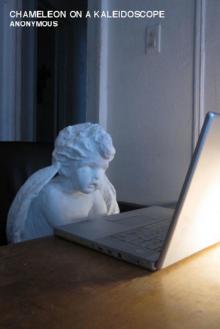 Chameleon On a Kaleidoscope (The Oxygen Thief Diaries)
Chameleon On a Kaleidoscope (The Oxygen Thief Diaries) Astrid Cane
Astrid Cane BEATRICE
BEATRICE The Song of the Cid
The Song of the Cid